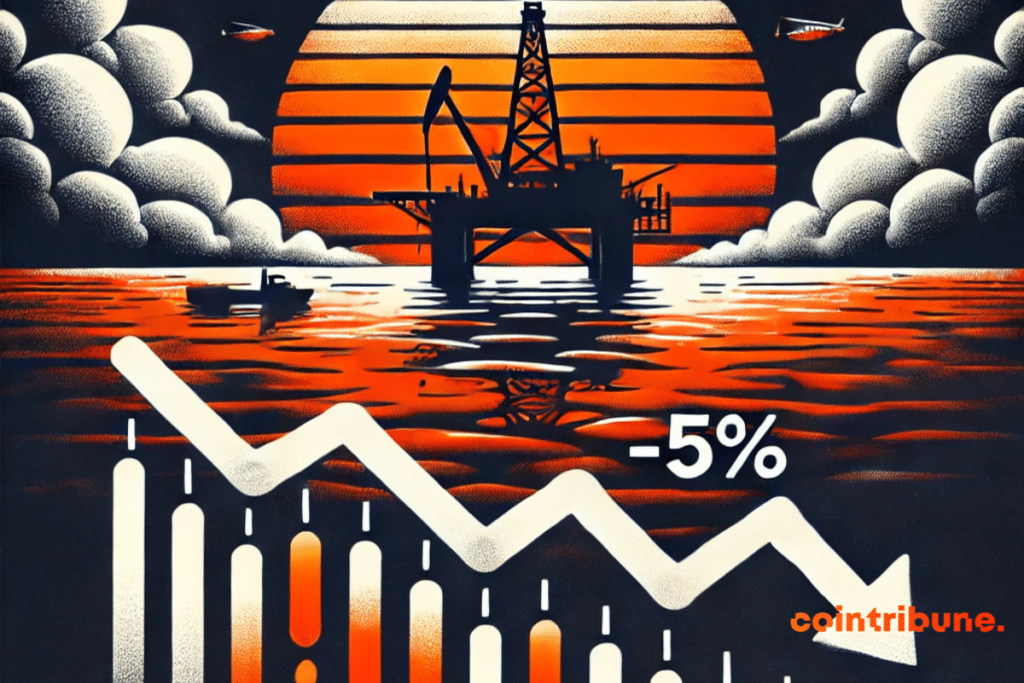Oil: Tensions within OPEC+ accelerate the price decline
As global attention shifts to the markets, oil continues to plummet, confirming a 5% decrease over the past month. This price decline, fueled by complex factors, exposes the vulnerabilities of a stressed sector.

Opec+ Facing Its Contradictions
The Organization of the Petroleum Exporting Countries, along with its allies (Opec+), seems ensnared in a delicate situation.
Despite prolonged production cuts lasting 18 months, the anticipated effect is slow to materialize. In reality, these adjustments resemble more of an attempt to patch up breaches rather than a strategy for sustainable recovery.
According to John Evans, an analyst at PVM, the overproduction capacity of Opec+ members constitutes a major problem.
Some countries, such as the United Arab Emirates, struggle to meet their quotas, thereby increasing market distrust. This collective breach undermines the cartel’s credibility, while investor pressure remains strong.
Brent crude from the North Sea and U.S. WTI, barometers of the oil markets, reflect this uncertainty.
The former falls to $71.43 per barrel, while the latter reaches a modest $67.66. At these levels, not only are producers’ margins eroding, but the implicit goal of keeping the barrel between $80 and $90 is moving dangerously out of reach.
An Abundant Global Supply
In parallel, another challenge emerges: oil production outside Opec+ is reaching new heights. In the United States, drillers are operating at full capacity, pushing national production to a record level.
Data from the International Energy Agency (IEA) confirms this trend, anticipating a surplus supply of 1.1 million barrels per day by 2025.
This dynamic is explained by a combination of factors. On one hand, political support for fossil fuels in the United States remains strong.
On the other hand, technological advancements allow producers to maximize extraction at lower costs. This robustness outside Opec+ further highlights the organization’s inability to exert sustainable influence on the global market.
The increase in U.S. crude stocks (+5 million barrels this week) illustrates this paradox: despite a decline in demand, supply continues to grow. This structural imbalance could maintain pressure on prices in the coming months.
These persistent fluctuations in oil prices raise a crucial question: are we witnessing a slow reevaluation of global dependence on black gold? While excessively low prices harm the finances of producing countries, they also accelerate the transition to cleaner energies.
Maximize your Cointribune experience with our "Read to Earn" program! For every article you read, earn points and access exclusive rewards. Sign up now and start earning benefits.

Fascinated by Bitcoin since 2017, Evariste has continuously researched the subject. While his initial interest was in trading, he now actively seeks to understand all advances centered on cryptocurrencies. As an editor, he strives to consistently deliver high-quality work that reflects the state of the sector as a whole.
The views, thoughts, and opinions expressed in this article belong solely to the author, and should not be taken as investment advice. Do your own research before taking any investment decisions.